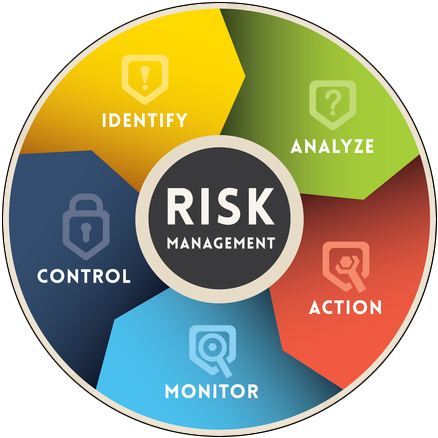Strategies for managing risk for entrepreneurs

Strategies for managing risk for entrepreneurs
By: Okunlola Christiana Omolola
Entrepreneurs can effectively manage risk by proactively identifying, evaluating, and addressing possible threats to their enterprise. This involves developing a detailed business plan, diversifying income sources, investing in cybersecurity measures, and obtaining suitable insurance. Additionally, entrepreneurs should concentrate on establishing solid financial practices, which include managing cash flow, reducing debt, and setting clear terms for credit and payments.
Here’s a more in-depth look at essential risk management strategies:
1. Thorough Business Planning:
A comprehensive business plan enables entrepreneurs to grasp the market landscape, competition, and possible financial dangers they may face. It should incorporate strategies for risk mitigation to tackle challenges as they emerge.
2. Diversification:
Expanding revenue sources (for instance, by providing various products or services or focusing on different customer groups) lessens dependence on a single income stream.
3. Financial Risk Management:
Implementing effective record-keeping methods is essential for monitoring financial activities.
Ensuring adequate funding and maintaining a cash reserve is important to manage unforeseen costs or drops in revenue.
Minimizing debt and accounts receivable (funds owed to the business) lowers the likelihood of financial pressure.
4. Cybersecurity:
Defending against cyber threats is becoming more critical, particularly with the growth of online business activities.
Allocating resources to cybersecurity strategies, including firewalls, intrusion detection systems, and data encryption, is essential.
5. Insurance:
Possessing suitable insurance policies (such as general liability, property, professional liability, and cybersecurity insurance) safeguards against potential losses resulting from different risks.
6. Pursuing Professional Guidance:
Engaging with specialists such as accountants, legal advisors, and cybersecurity professionals can offer critical insights and direction concerning risk management.
Building a network within the industry and obtaining advice from seasoned entrepreneurs can also prove advantageous.
7. Ongoing Monitoring and Adaptation:
Consistently tracking key performance indicators (KPIs) and market developments facilitates the early identification of possible risks.
Utilizing real-time data analysis and embracing flexible business models can empower companies to adjust swiftly to evolving situations.
By implementing these strategies, entrepreneurs can significantly reduce the likelihood of business failure and increase their chances of long-term success.









